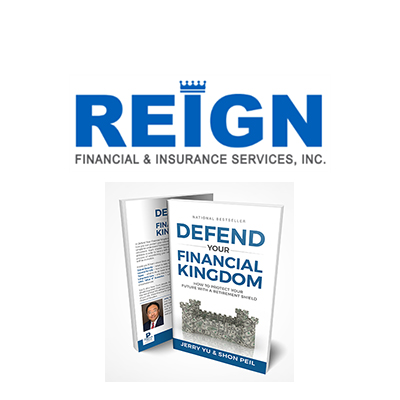
Is a 529 the only way to save for college?
by Jerry Yu
Monica was an attentive, motivated parent, going far beyond the call of duty to ensure her son Jacob had every tool available to succeed. Sacrificing time and money, Monica made sure Jacob had access to tutors to increase his chances for academic success and coaching to make him a better hockey player. She even bought him a private gym membership so he could work on improving his strength and coordination. And when Jacob was still in diapers, Monica started a 529 college savings plan to pay for his eventual college education.
Unfortunately, Monica’s efforts to create the ideal success foundation for her son hit a slight snag. By the time Jacob reached age 16, there was over $200,000 in the 529 account, enough to fund tuition at any school where he was accepted. That sounds fantastic, right? Well, there was an unanticipated problem with that 529 plan, one that many well-intentioned parents discover.
You see, Jacob became an athletic and academic star in high school, with a GPA above 4.0. As a sophomore, he made varsity in hockey and enrolled in all available AP classes. Jacob also got online tutoring from Stanford University. Jacob is already creating a buzz among college recruiters, who sometimes show up at his hockey games.
Jacob’s mother is, as you might expect, over the moon about his accomplishments. However, her financial advisor made her aware of a potential issue she had never considered when they started the 529 plan- Jacob had become almost too successful. He was virtually guaranteed a full-ride scholarship to a prestigious university. What will happen to all that 529 money when he gets a scholarship?
529 plans can backfire.
Widely promoted as the best way for parents to start saving for their kids' educations, a 529 plan is a tax-advantaged investment account used to pay for qualified education expenses for a designated beneficiary. You may use a 529 plan to pay for college, K-12 tuition, eligible apprenticeship programs, or even to repay student loans.
When a 529 is your primary method of financing education, you may run into issues. These plans certainly have limitations, and many parents don't discover such pitfalls until it’s too late.For instance, if your child decides to forego college, doesn’t use all the money in the account, or gets a generous scholarship, your options for using the account’s money are limited. You will either be forced to give the funds to someone else to pay for school or pay a stiff penalty when you withdraw it. Either way, you will lose money.
Unfortunately, the most popular college savings tool penalizes parents whose children work hard and get scholarships. Parents with 529s can also lose money if their child pays for tuition themselves with a part-time job or work-study program. Or, what if you save enough for your kid to go to Harvard, but they decide on two years of vocational training instead? A 529 makes no provisions for any of these kinds of situations. 529s also penalize you in other ways. If you have money in a 529, your child won’t qualify for the total amount of student aid or loans they might otherwise have gotten.And, by tying up a large sum of money in a 529 account, Monica lost out on opportunities to grow her retirement account or invest in a business or other income-producing asset. Beyond losing liquidity and control of a large sum of money, using a 529 may prevent parents from ensuring their kids are financially literate and responsible. Most parents, indeed, end up using 529 funds to send their kids to college. But, the plan offers no creative ways to teach kids about fiscal responsibility.
Using a 529 plan, parents face creating a situation where the family pays for everything, a model similar to the “Chinese Grandpa” philosophy I mention in my book, “Fortify Your Financial Kingdom.” This option could turn some kids into entitled brats or severely alter how they view money and personal finance. Your other choice is to it the”American Grandpa” way and do nothing, telling your kid to “figure it yourself and pay your own way.”
Neither of these approaches is ideal for financing an education. The Chinese Grandpa method requires a lot of cash. It also doesn’t teach your child anything useful about planning their financial future. Kids who have everything paid for by their families typically don’t spend much time learning finance fundamentals. For example, I made it through college without understanding basic money concepts such as compound interest and how to use credit wisely. When your kid enters adulthood having never paid for anything themselves or never having had to scrimp and save to get something they want, they can quickly become careless with money.
The American Grandpa strategy is no better. It could protect your savings and teach your kid valuable money lessons, but it might also leave them saddled with massive debt. This debt could hover over them for decades. Would you want to see your child struggling to pay off college debt when they are over 40? It would help if you found better choices.
Thankfully, there is what I call a “hybrid Grandpa” solution. Using a hybrid solution helps teach your kids critical money lessons while keeping them from becoming burdened with debt. The hybrid model is an easy concept to grasp. First, your kid takes out student loans. Those loans will cover the initials cost of their education, so they can start school. Getting loans teaches your child responsibility and critical financial principles. They will make payments and understand how credit and interest work. So far, this sounds like the American Grandpa method, doesn’t it? But Hybrid Grandpa has added a twist. Before your kid begins college, you offer them a deal with a set of conditions. You can add whatever requirements you want to align with the values and lessons you think your child should learn. If they work hard in school, keep up their grades, get a part-time job, and make their loan payments on time, you agree to pay off their loans when they graduate.
With a Hybrid Grandpa plan, your child will discover the value of money, hard work, time management, and organization. They will effectively get two educations- one academic and one practical. Best of all, The Hybrid Grandpa plan lets them start their lives without crippling debt.
If this approach to college planning intrigues you and you'd like to know exactly how I create these college finance blueprints for my clients, reach out to me. Or, you can discover more in my latest book, “Fortify Your Financial Kingdom.” Visit this website to reserve your free copy.
jerryyu.retirevo.com






